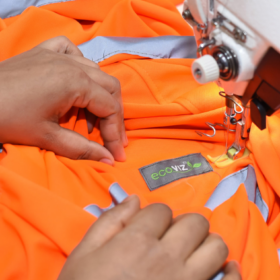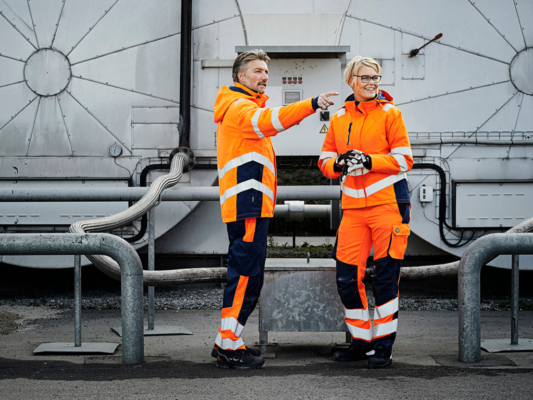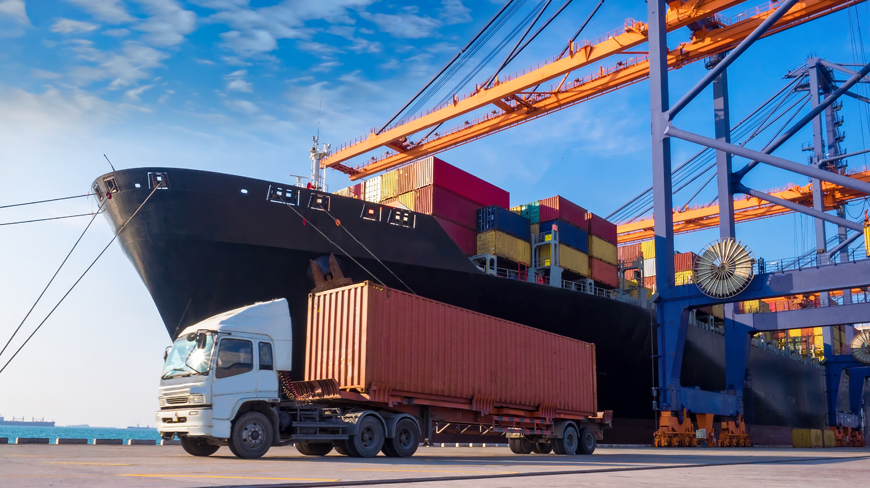No products in the basket.
Health & Safety, PPE, Workwear
Is Inflation Affecting The Safety Clothing And PPE Industry?
As the UK is in the midst of a cost of living crisis, many organisations are beginning to wonder is inflation affecting the safety clothing and PPE industry. At the point of publication of this article, inflation currently sits at 9% in the UK compared to 2.1% at the same date last year (May 2021).
From fuel to energy bills, to food, prices are continuing to rise so it’s no surprise that the workwear and PPE industry has also been impacted by inflation and rising costs. The big question that everyone is asking though is why the cost of everything has increased so dramatically and rapidly.
Why is there pressure on the supply chain?
For most of 2020 and 2021, the world as we know it stood still. The domino effect of lockdown worked its way across the globe with many businesses forced to furlough staff or close.
The latter part of 2021 saw a dramatic increase in economic activities and demand when industries and economies reopened as we learned to live with Covid. This was great for the global recovery, but the impact of the pandemic alerted us to issues within many industry supply chains.
At present, there are huge challenges facing supply chains including a global imbalance between supply and demand. The sourcing of workwear and PPE has also been impacted by this situation resulting in quick thinking and innovative solutions to combat these ongoing issues.
Why has the war between Russia and Ukraine had an impact on global supply chains?
The Russian invasion of Ukraine has sent shockwaves of horror across the world and has unfortunately resulted in an unprecedented impact on global supply chains from wheat to grains, sunflower oil to fuel and beyond.
This war has also led to a greater demand in the protective clothing and PPE industry for aramid fibres which are used for military applications including ballistic helmets and body armour. Increased demand for these products and materials has impacted supply which has increased prices in an already precarious economic situation.
The impact of the COVID-19 pandemic
Producers and manufacturers are catching up with the backlog of orders and demand which has built up following the pandemic. During the COVID-19 crisis, supply was low and therefore output was also low. Now that demand has begun to increase rapidly, supply chains are working hard to get back to pre-pandemic levels as quickly as possible.
Alongside this, there is a container crisis in Asia whereby container prices have increased sixfold. The speed of post pandemic recovery across the globe varies from country to country resulting in a lack of containers coming back to Asia. This situation has also led to an increase in the costs for shipping. New outbreaks of COVID-19 and lockdown laws prevented ships from entering the port of Shanghai, bringing down the reliability of on-time shipment arrivals. Other regions in the world have also seen decreases placing further stress on the existing supply chains.
The knock-on effect of this on the technical workwear and PPE industry is frustrating. Many items are imported from Pakistan, India and China and suddenly lead times have more than doubled from 4-6 weeks to 10-12 weeks. Suppliers are reporting that in demand items are out of stock or won’t be available for three months or more. Protective clothing and PPE are a vital requirement for employees working in high-risk industries. At Clad Safety, we have tried to minimise this issue and provide solutions to any problems our customers may face.
The fuel and energy crisis
The world is currently experiencing an oil and energy crisis with prices in the UK alone are reported to be at a 54% increase. This has been further exacerbated by the Russia-Ukraine war, which has seen a halt on chemicals being exported from Russia along with sanctions being imposed from many of the NATO member states. The high visibility clothing and PPE industry is heavily reliant on oil, energy and chemicals for its manufacturing processes and therefore any obstructions to this have a direct effect on the supply chain including price increases.
The availability of dyes and finishing chemicals has also been negatively impacted by the effects of the pandemic. Dye producers are catching up with the order demand and backlog which built up during the past two years, after demand peaked and output reduced when demand was low.
All these factors are serious obstacles to overcome individually but the situation unfolding at present means it’s no surprise that there are global supply chain issues.
How do we ride the storm of hyperinflation in the supply chain?
The current supply chain challenges are forcing industries and suppliers to evolve and adapt quickly, and most importantly, safely. Many of these issues will take several months or even years to resolve so it is important to plan ahead and find solutions. This can include working with a trusted workwear and PPE supplier who can advise you on stock forecasting and in turn, buy products and materials earlier, faster and at a better price. They can also suggest alternative brands and products to try whilst ensuring the health and safety of your team is their top priority.
What are Clad Safety doing to overcome inflation and supply chain issues?
As mentioned above, Clad Safety are working hard to ensure our customers are not affected by inflation and supply chain issues. We are working very closely with our suppliers to ensure alternative options are available and have excellent stocks of core workwear and PPE items in our warehouse in Knaresborough. Alongside this, we are manufacturing our own range of products including thermals, cargo trousers and safety footwear giving us more control of stock levels and faster delivery whilst also instilling our customers with confidence and trust in Clad Safety.
Are you having supply chain issues or struggling to source specific technical workwear and PPE? For over 30 years Clad Safety has been a trusted supplier of workwear, safety footwear and PPE. Speak to one of our technical experts on 0800 161 3661 or email [email protected] and we will find a solution to your needs.




